Health
5 Reasons To Eat More Avocado
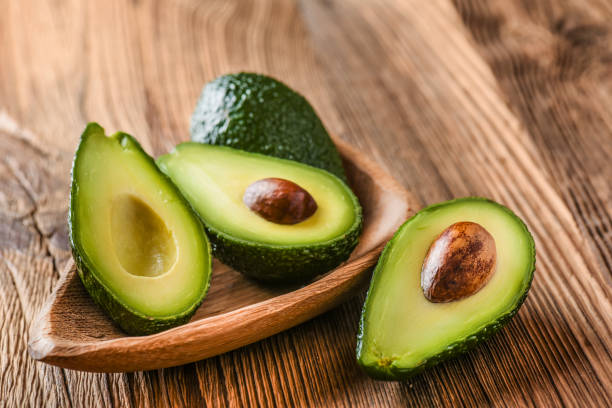
Are you interested in living a healthy life? Do you think fruits and vegetables are ideal for general health? If you can relate with the above questions, then avocado should top your meals today. Avocado remains a good source of key nutrients which includes fibre and healthy fats. Moreso, Avocado contains high antioxidant and anti-inflammatory properties, which combat heart diseases. Here are 5 reasons why eating more avocado is recommended.
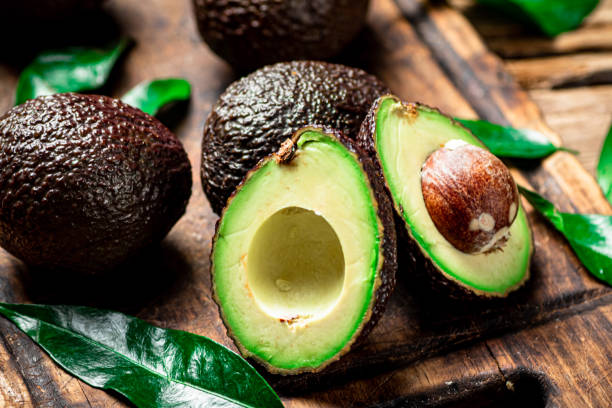
Excellent for Gut Health
Avocados have immense fiber, which benefits everyone . Having more fibre in your diet is important because you are relieved of digestive complications. Also, fibre helps maintain a good atmosphere for the growth of healthy bacteria. Various health researchers suggest that taking more avocados can help reduce inflammation and combat cancer.
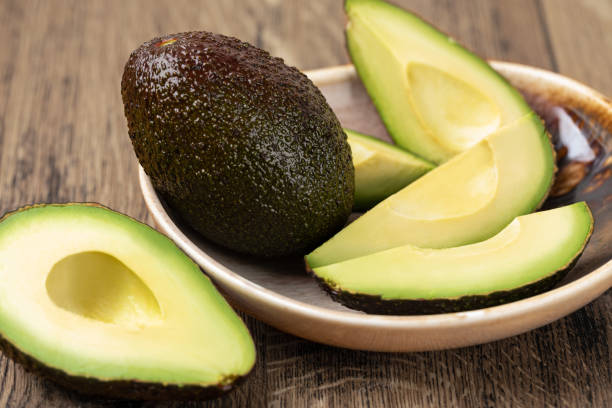
A Good Source of Healthy Nutrients
Aside from fiber, avocados have a high concentration of essential nutrients, which are unavailable in many diets. This fruit contains the following nutrients :
- Vitamin C
- Fat
- Calorie
- Vitamin E
- Riboflavin
- Niacin
- Folate
- Copper
- Manganese
- Potassium
These are just some of the nutrients you can find in avocados as it boasts numerous others. These nutrients are available in large proportions in avocados and are beneficial to those seeking good health.
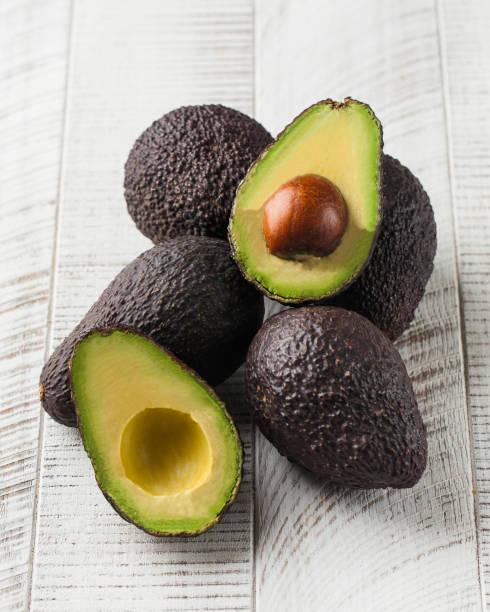
Helps Lower The Risk of Heart Disease
By taking nutrient-dense fruits like avocado in large quantities , you guard against heart illness. The rich nutrients found in this fruit play a huge role in keeping your cardiovascular system in good shape. One of the benefits of eating avocado is that it helps reduce cholesterol levels in the body. Also, the high potassium in it s is ideal for blood pressure regulation and guarding against heart attacks.
Read Also : 5 Daily Activities That Can Help Lower Blood Pressure

Healthy Body Weight Management
There are factors that help manage body weight, and they include regular exercise and a balanced diet. Asides having high calories, it contains abundant nutrients that help maintain good body weight. People who are overweight need to it more and other fibre-based meals to help maintain good body shape.
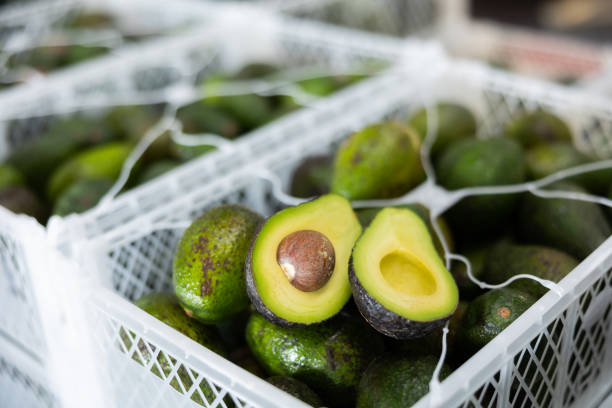
Ideal for Pregnant and Breastfeeding Women
Pregnant and breastfeeding women need twice the normal nutrients required. Unfortunately, most women in this state don’t meet the daily requirement, which could cause pregnancy complications. High amounts folate, B6, and vitamins are important for pregnant women. Additionally, avocado is known to help reduce constipation pains, common during pregnancy.
Final Thoughts
Avocados are excellent sources of important nutrients that the body needs. Eating this fruit regularly will help protect against heart disease, enhance body satiety and improve overall diet quality.
Health
Workout Routines That Support Bones Health

Strong bones depend on more than just calcium or supplements. Research shows that bones respond to physical stress: when muscles and weight-bearing activities challenge the skeleton, bone tissue becomes denser and stronger. To protect skeletal health over the long term, exercise should combine weight-bearing activity, resistance training, and balance work. Together, these exercises address the main risk factors for fractures: low bone density, weak muscles, and poor coordination.

Photo Credit – Google
Weight-bearing activity doesn’t need to be extreme to be effective. Regular brisk walking around neighbourhoods or local parks strengthens hips, legs, and spine, while climbing stairs or light jogging improves lower-body density. Dance classes, including Afrobeat or traditional Nigerian dances, provide varied movement patterns that engage muscles and improve coordination. Starting with 15–20 minutes per session, three to five days a week, and gradually increasing intensity or duration can deliver measurable benefits.

Photo Credit – Google
Resistance training plays a key role in maintaining strong bones. Gradually increasing weight or resistance helps muscles and bones adapt. Exercises such as squats and deadlifts target the hips, thighs, and spine, while lunges and step-ups build strength in the lower body and promote functional movement. Push-ups, pull-ups, and shoulder presses strengthen the upper body and spine. Two to three sessions per week covering all major muscle groups are sufficient. Free weights, resistance bands, or bodyweight exercises can all be effective depending on what equipment is available.

Photo Credit – Google
Balance is equally important because falls are a leading cause of fractures. Single-leg stands and heel-to-toe walking improve stability and coordination, while yoga, Tai Chi, or mobility exercises enhance control and complement other workouts. Integrating balance with strength and weight-bearing exercises provides a complete approach to bone health.
Common mistakes include relying solely on low-impact cardio such as swimming or cycling, which has little effect on bone density, and attempting high-impact exercises without preparation, which can increase injury risk. Effective routines should be planned, progressive, and performed consistently to build resilience safely.

Photo Credit – Google
A sample weekly schedule could include strength-focused exercises on Monday, such as squats or step-ups, deadlifts or hip-hinge movements, and push-ups or shoulder presses. Wednesday could focus on weight-bearing activity and balance through brisk walks, single-leg and heel-to-toe drills, and light dynamic movements. Friday can target functional strength with lunges or carries using household objects, core stability exercises, and stretching or yoga. This cycle can be repeated weekly, increasing load or complexity gradually.
Strong bones require intentional, evidence-based exercise. By combining weight-bearing activity, resistance training, and balance work, Nigerians can maintain bone density, reduce fracture risk, and improve overall skeletal resilience. Starting at your current fitness level, increasing load progressively, and including balance exercises will help protect bones for the long term.
Health
Disordered Eating Vs. Eating Disorder: Experts Explain The Differences And When To Seek Help

Disordered eating and clinical eating disorders are not interchangeable. Disordered eating refers to irregular or emotionally influenced habits around food: chronic dieting, skipping meals, rigid food rules, occasional binge episodes or persistent preoccupation with calories, weight or body shape. These habits may shift, but when repeated over time they often point to growing vulnerability.
Clinical eating disorders, by contrast, are diagnosed mental-health or medical conditions marked by persistent, patterned behaviours that impair physical health, mental wellbeing or daily functioning. Conditions such as anorexia nervosa, bulimia nervosa, binge‑eating disorder and other specified feeding or eating disorders fall into this category.

Image: Google
Evidence from Nigerian research confirms that disordered eating attitudes and risk for eating disorders are present among young adults and adolescents. In a study of more than 1,050 undergraduates from two higher‑education institutions in Lagos, roughly 16 percent scored positive on the EAT‑26 screening tool for disordered eating attitudes.
At a university in Ile‑Ife, a survey of female undergraduates found that 17.1 percent were classified as at high risk for eating disorders, based on the same screening instrument.
A more recent analysis among female undergraduates in Lagos found a lower prevalence of disordered eating (about 5 percent). Still, the study flagged a strong association between body-image dissatisfaction, body‑mass index (BMI) and disordered eating attitudes.
Adolescents are not exempt: a survey of 13 to 19-year-olds in Ibadan used screening tools to assess disordered eating behaviours and feeding/eating disorders. Results showed that 28.2 percent exhibited disordered eating behaviours, and a significant portion also met screening criteria for feeding/eating disorders.

Image credit: Google
Clinical, clearly diagnosed cases have also been documented. There’s a recorded instance of a 20-year-old undergraduate at a Nigerian university diagnosed with anorexia nervosa showing that what may start as dieting or food anxiety can escalate into serious health and psychiatric risk.
Because disordered eating and eating disorders exist within the Nigerian context, distinguishing between them matters. Persistent preoccupation with food, weight or body shape; regular dieting, bingeing or purging; emotional distress tied to eating; and disruption of everyday life are all red flags. When those signs persist, seeking professional support whether nutritional counselling, psychological therapy or medical care becomes essential.
Health
The Exercise That Keeps You Younger

If you’ve ever met someone in their fifties who moves like they’re still in their twenties, it’s likely they’ve discovered the simple habit that keeps the body from giving in to age: regular movement.

While fitness trends keep changing, one form of exercise has stayed constant in its benefits: strength training. It’s not about building bulky muscles or chasing a perfect body. It’s about keeping your bones strong, your joints stable, and your metabolism from slowing down. After the age of 30, the body naturally begins to lose muscle each year. That’s why everyday tasks, like climbing stairs or carrying groceries, start to feel heavier. Strength training helps reverse that.

Research supports this claim. People who lift weights or engage in resistance exercises have lower risks of diabetes, heart disease, and cognitive decline. But beyond the science, it’s about how it makes you feel. Nigerians juggling work, traffic, and family life know how draining each day can be. Even short sessions of body-weight squats, lunges, or push-ups a few times a week can recharge you better than most expensive wellness fads.

It also boosts your mood. Physical activity releases chemicals that help clear mental fog and lift your energy. It’s your body’s way of proving it still has strength to give.
You don’t need a gym to start. A mat, a pair of dumbbells, or even two water bottles will do. The goal is to stay consistent, to keep your body active enough to stay responsive.
Each push, lift, or stretch is a reminder that staying young isn’t about denying age; it’s about moving through it with strength.
-

 Celebrity Style4 months ago
Celebrity Style4 months agoMercy Aigbe Keeps it Sharp in Ivory Dress
-

 Celebrity Style5 months ago
Celebrity Style5 months agoTwo Ways to Wear a Suit, According to Liquorose
-

 Celebrity Style4 months ago
Celebrity Style4 months agoBella Okagbue Puts a Spin on Feminine Suiting
-

 Fashion5 months ago
Fashion5 months agoBella Okagbue Clean London Look
-

 Fashion4 months ago
Fashion4 months agoTeminikan Experiments with Geometry in a Woven Mini
-

 Music5 months ago
Music5 months agoTiwa Savage Was in New York for Her Album Media Run
-

 Celebrity Style5 months ago
Celebrity Style5 months agoTiwa Savage Ties Up New York in Style
-
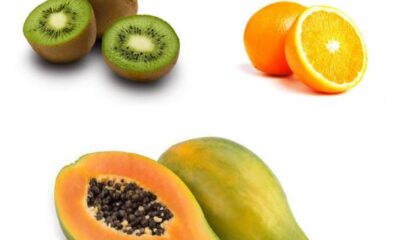
 Health5 months ago
Health5 months agoWhich Fruits Are Highest in Calcium?
-

 Lagos Fashion Week3 months ago
Lagos Fashion Week3 months agoLagos Fashion Week’s Earthshot Prize Win Highlights a Changing Direction in African Fashion Production
-

 Beauty5 months ago
Beauty5 months agoMust Adapt Beauty Routine for Woman Above 25
























